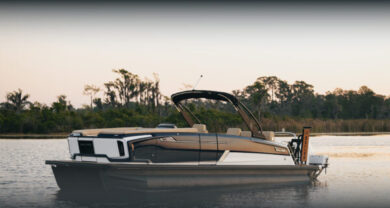The Ethanol Hangover
Some say ethanol is the answer to America’s current energy crisis. Others say it takes more energy to make ethyl alcohol than is produced at the end of the process.
But in the boating industry there is virtually no debate when it comes to at least one key point.
Ethanol can do a great deal of damage to outboard engines if it is simply poured into a fuel tank and then ignored.
That was the message Yamaha Marine sought to convey during a presentation held this summer at the Marine Aftermarket Accessories Trade Show in Las Vegas.
Engineers from the company were on hand to, among other things, discuss the impact that ethanol can have on
outboard engines.
Under the Federal Energy Policy Act of 2005, which mandates that some renewable fuels be used to make motor fuel, ethanol will serve as a substitute for MTBE (methyl tertiary butyl ether) a gasoline additive that burns more completely but is also considered carcinogenic and has been linked to groundwater pollution. The Energy Policy Act requires U.S. fuel ethanol production to increase to 7.5 billion gallons by 2012.
But ethanol — which is denatured grain alcohol that can be made from crops like corn — is a hygroscopic substance, meaning it attracts moisture.
The Yamaha engineers said this would likely cause phase separation and that water would collect at the bottom of the fuel tank, which could damage outboards.
Another drawback of ethanol, when used in marine engines, is that it is a very effective and versatile solvent, meaning it can dissolve engine deposits and resins including components of the fuel systems themselves, such as fiberglass fuel tanks. Ethanol creates a sludge in some systems that can clog fuel filters.
What to do
Yamaha recommended that several steps be taken to combat the negative effects ethanol can produce, including inspection of fuel system components and the replacement of those that show any signs of swelling, hardening, softening or other unusual properties.
The company also advises that fiberglass fuel tanks older than 1985 be replaced, and, because ethanol absorbs moisture from the air, that fuel tank vents be plugged when engines are not in use.
Dealers should also make sure that boaters are using a good fuel filter, that frequent inspections of the filters take place, and that they carry replacement filters with them as well.




